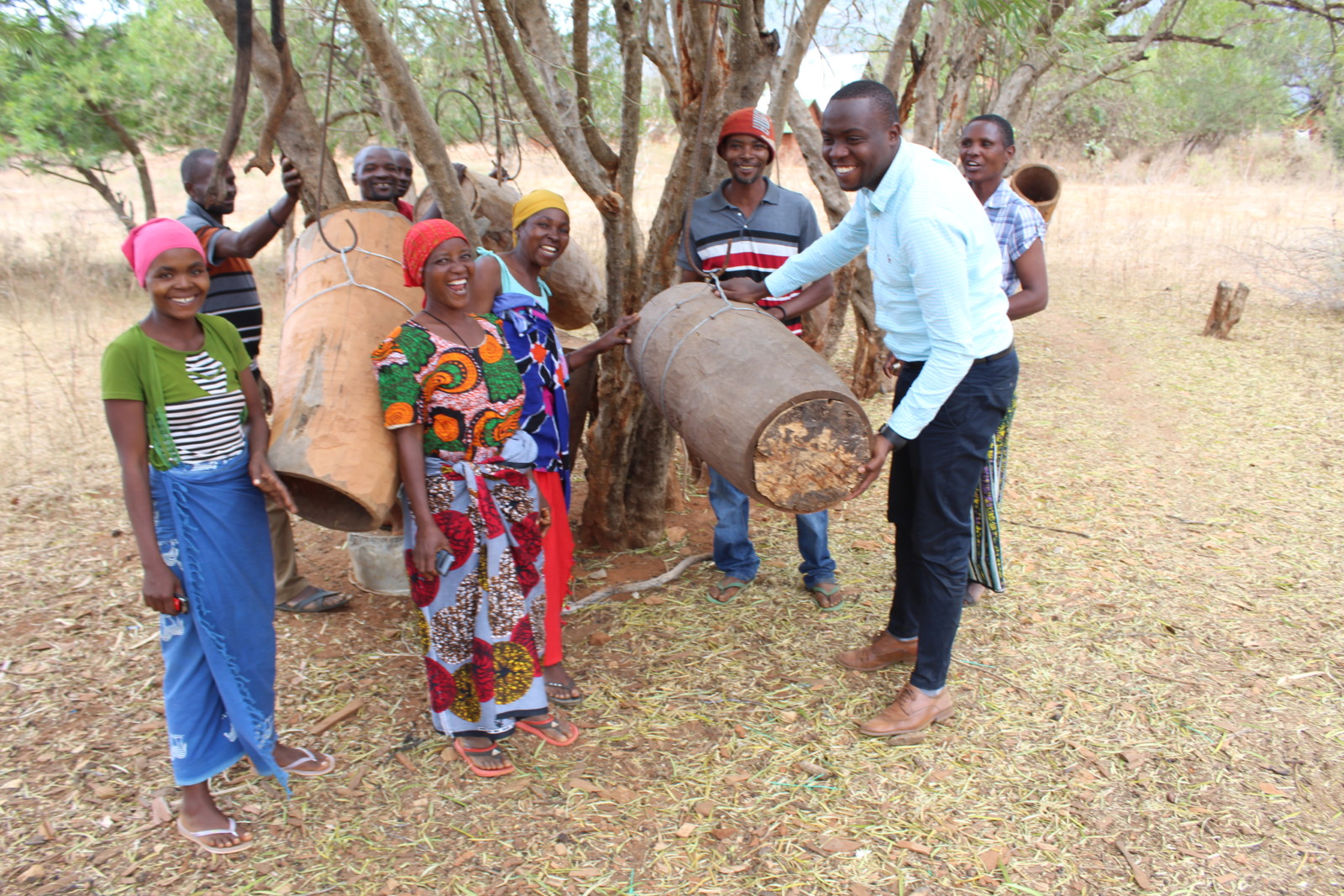Boeing to transform the lives of 1,620 entrepreneurs in Tanzania with Hand in Hand International
01 Dec 2020

Boeing and Hand in Hand have been teaming up since 2018 to help communities in Tanzania work their way out of poverty and start businesses – transforming thousands of lives in the process.
By 2023, Boeing and Hand in Hand will have trained more than 3,400 women and young entrepreneurs, creating more than 3,000 jobs and delivering long term economic impact for families and communities.
Launched in January 2021, the latest Boeing – Hand in Hand project trains farmers in Kilimanjaro Region, Tanzania as agri-entrepreneurs, raising incomes and protecting the local environment in the fight against climate change. By extending the project for an additional 12-months, Boeing will support the training of a further 720 community members, reaching 1,620 entrepreneurs in total – 90 percent of them women.
Members of the project will become specialists in regenerative agriculture, an approach to farming that takes carbon out of the air and puts it back into the soil, improving both yields and the local environment.
By the time their training in areas such as composting, crop diversification and livestock management is complete, project members are expected to see an average 25 percent boost in income – money that will help fund education, healthcare and improved nutrition for more than 4,500 women, men and children.
Kuljit Ghata-Aura, President of Boeing Middle East, Turkey and Africa (META), said: “We feel privileged and committed to continue our partnership with Hand in Hand in Tanzania. Boeing’s sustained involvement and long-term investment in local communities represents one of the many steps we take together to connect the world and make it a better place for future generations.”
Jane Sabuni, Tanzania Country Manager for Hand in Hand Eastern Africa, said: “With Boeing’s help, farmers’ plots are transitioning from surviving to thriving. The regenerative agriculture techniques they adopt are increasing women’s incomes and the productivity of their farms. As a result, we are seeing greener lands, improved food security and brighter futures for their families.”
Dorothea Arndt, Hand in Hand International CEO, said: “Something special is happening in rural Tanzania: a revolution that will help some of the world’s poorest women climb their way out of poverty as agri-entrepreneurs, even while they fight back against climate change. Our sincere thanks to Boeing for making it possible.”
1,620 community members trained
1,134 small businesses launched
Average 25 percent increases in net enterprise income
Why Tanzania?
The World Bank 2019 Tanzania Mainland Poverty Assessment reports that 26.4 percent of people in Tanzania live in poverty, whereas eight percent live in extreme poverty. The situation today is worse, as communities globally were impacted by the coronavirus pandemic.
With so many people living in poverty, 79 percent of poor Tanzanians depend on agriculture. The majority of households rely on subsistence farming – which is rain-fed – for survival, growing a limited number of crops. Climate change aggravates the situation, threatening livelihoods and food security. It is estimated that approximately 60 percent of Tanzania is semi-arid or arid. Often, long dry spells occur during the growing season to the extent that crop and pasture production becomes poor.
Many practices viewed as mitigating climate change can actually harm local ecosystems, creating further problems. For example, sustainable intensification of agriculture – where farmers seek to maximise production in a condensed area – can involve an intense use of chemicals and synthetic fertilisers. This produces unequal yields and risks damaging community water sources. Monoculture approaches – that focus on the cultivation of a single crop at a time in a plot and emphasise the heavy use of fertilisers through short-term subsidies – similarly deplete land through the reuse of soil.
What’s next?
Based in the communities they serve, Hand in Hand trainers continue to recruit and train project members in subjects ranging from business to regenerative agriculture. Access to credit from external, pro-poor lenders and links to larger markets so members can sustainably sell their produce soon follow.
After project members complete their 12-month training – a timeframe which, for the first cohort of members, began in March 2021 – members will move from fortnightly sessions to monthly check-ins with trainers. These visits keep enterprises on track for sustainable growth and ensure external credit is being repaid. Members will also be encouraged to form larger producers’ groups to benefit from economies of scale and better market access.
